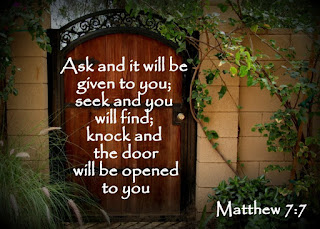July starts out hot and muggy, perfect weather for indoors reading. If you're following the schedule with "the little church with a big mission" you'll be handed an opportunity to catch up.
We'll finish the Gospel of Luke, FINALLY finish the book of Psalms, tackle the little NT letters of Collosians and 1 & 2 Thessalonians, and complete 1 & 2 Chronicles.
Some questions to wonder about while you're reading:
1. You may notice that 1 & 2 Chronicles are a retelling of the history of the Kings (1&2). Why did our faith ancestors want to keep both the Kings and Chronicles in the bible, since they repeat many of the same events? That's a fair question. We sometimes ask the same question about the four gospels. Of what advantage to us is this diversity, and what, exactly is this diversity/difference between the Kings and the Chronicles?
2. Of the three NT letters for this month, only 1 Thessalonians is an 'undisputed' letter of Paul. The other two claim Pauline authority, and also include Timothy. What is at stake in understanding who wrote these letters?
3. Ending the Book of Psalms is a magnificent praise psalm, number 150, which has been set to modern music a number of times. Now that you've finished the book, can you imagine why our protestant ancestors used it as their only hymnbook?
4. I have asked us to reflect on each writing in the bible as being composed for a purpose. How can we imagine those writings being used? In what settings were they read or heard? The Gospel of Luke has sometimes been described as an "irenic" (peaceful) gospel, that is, written to propose that the followers of Jesus, both Jews and Gentiles, could have continued fellowship in their religious expressions in the synagogues. The split between Christians and Jews happened at some period, but it's hard to know the exact circumstances. Some point to the Council of Jamnia inserting a curse on Christians into the daily synagogue prayer, although that's disputed. How is Luke a gospel proposing peace?
Keep asking questions. Matthew 7:7-8 "‘Ask, and it will be given to you; search, and you will find; knock, and the door will be opened for you. For everyone who asks receives, and everyone who searches finds, and for everyone who knocks, the door will be opened.
"

No comments:
Post a Comment